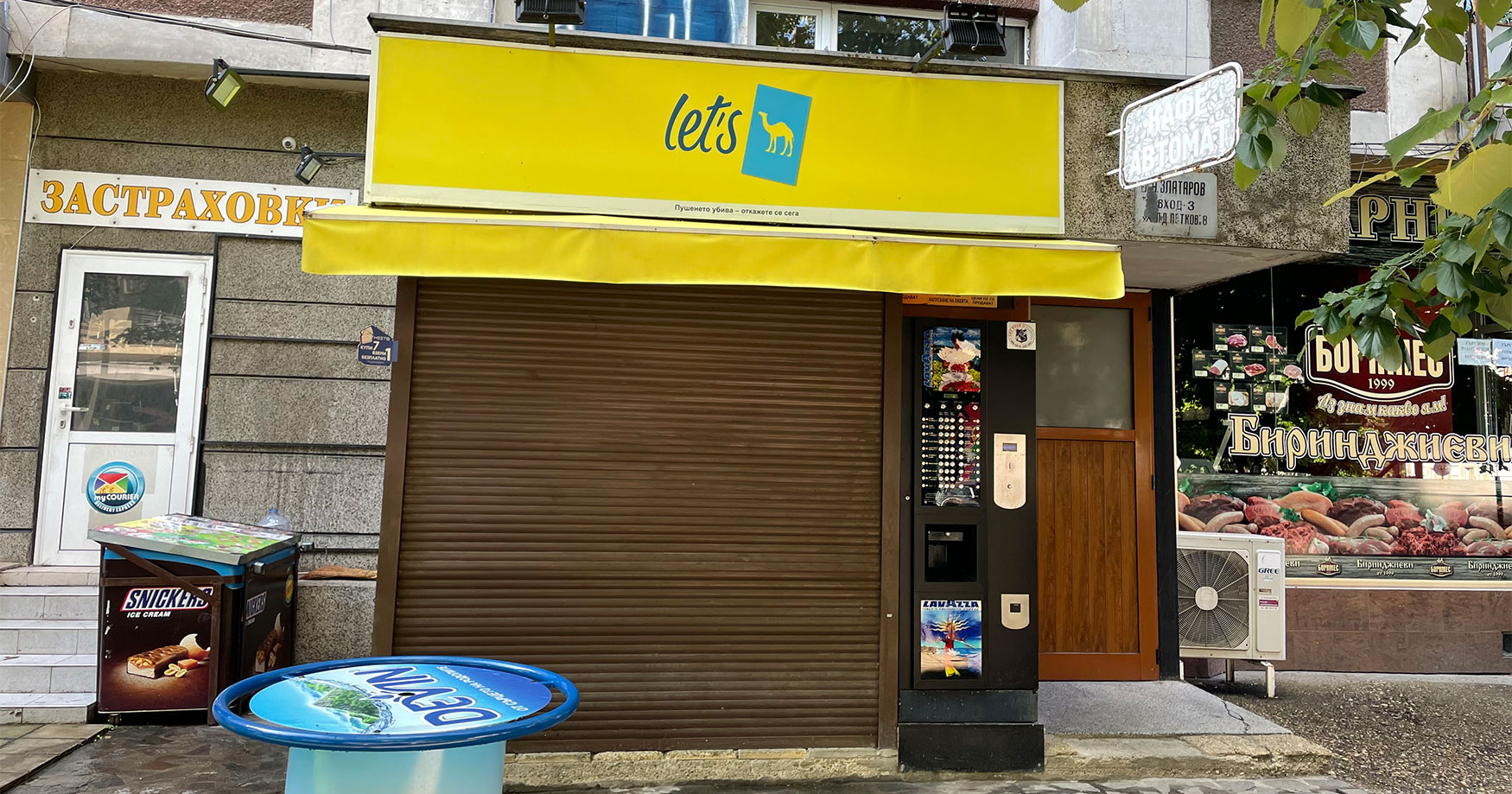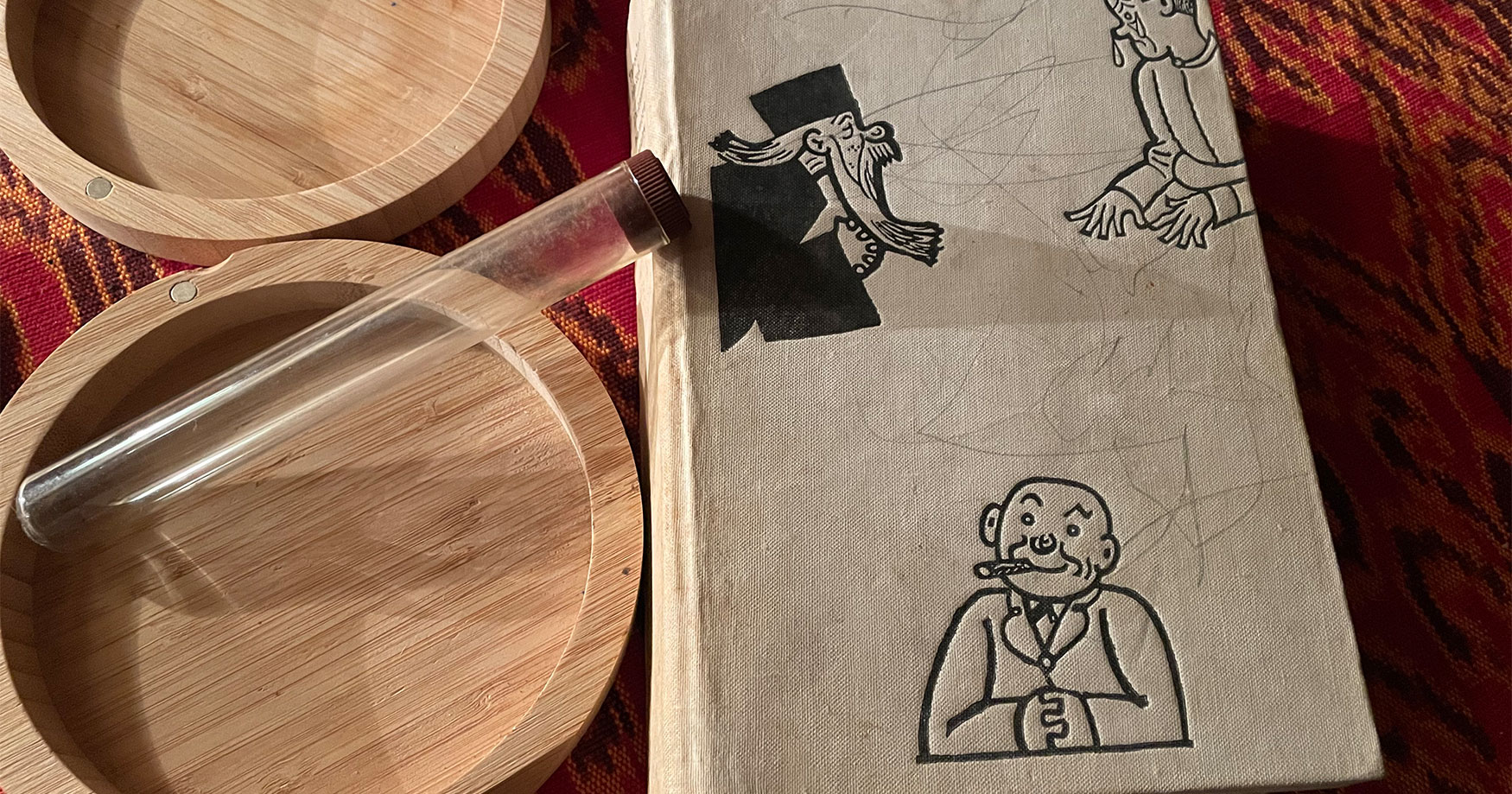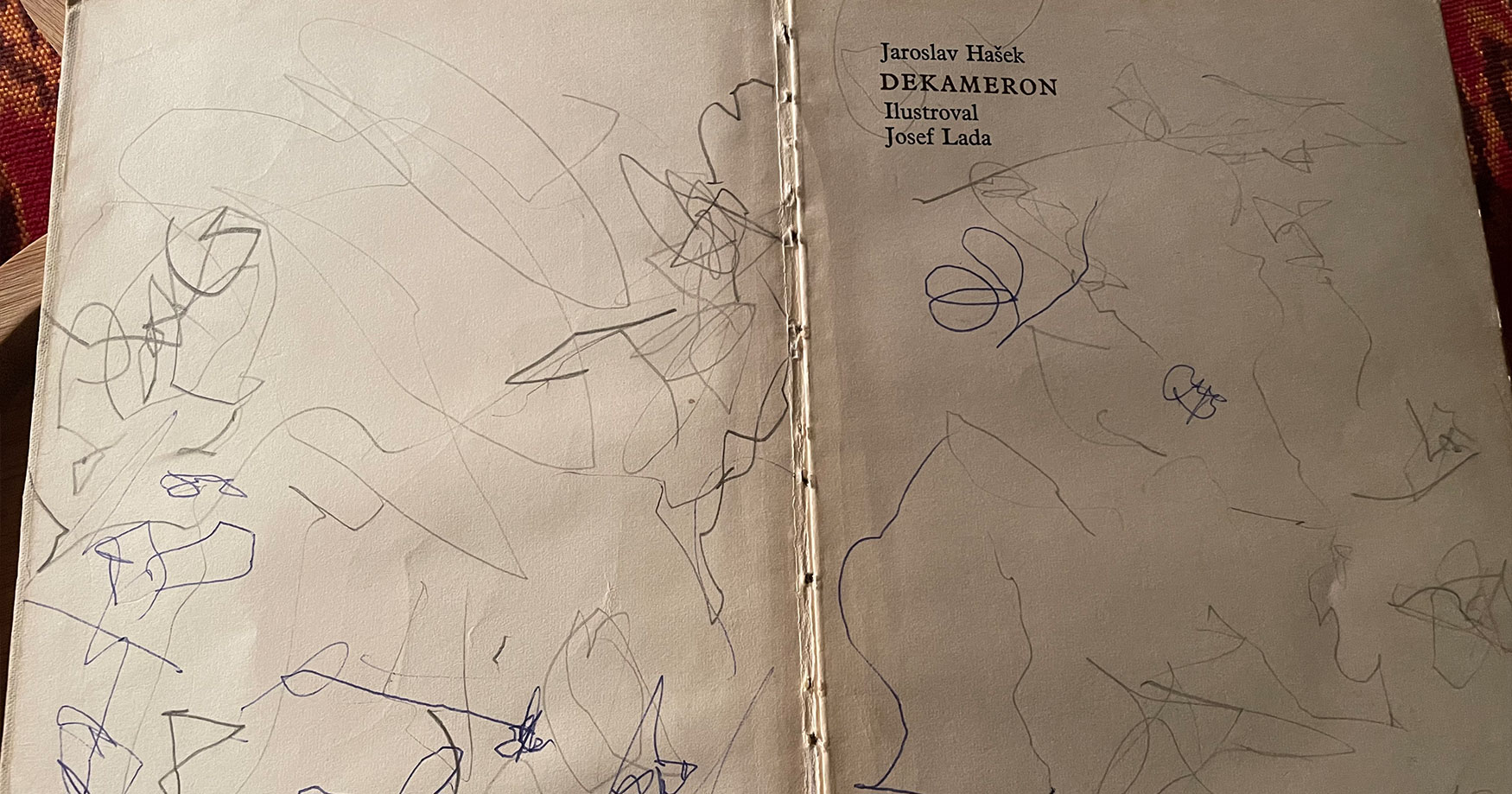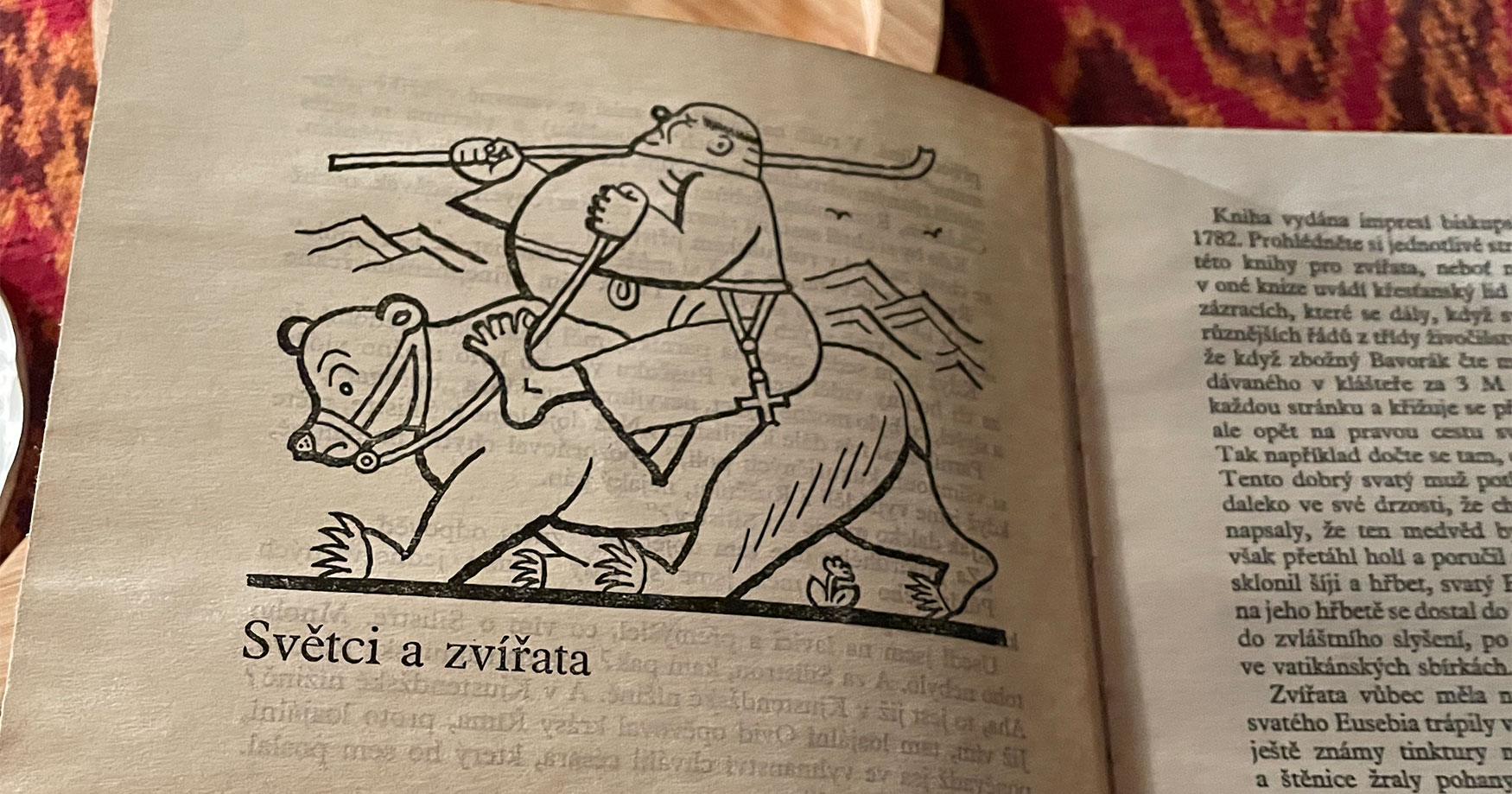
As displayed in the past two editions of Joseph Summer’s guest blog series, the stories that seem too good to be true are far from such a label. Are they mere coincidences, or stories of slim chance and destiny that beg to be heard?
If you’ve missed the last two editions, catch up with Part One and Part Two.
Today, Summer returns to the PARMA blog with a third installment of his Studio Journal, a series of anecdotes and stories surrounding his operatic adaptation of Hamlet. Read on for a thrilling continuation of Summer’s chronicle, in which he shares curious coincidences and remarkable moments of providence surrounding his time in Eastern Europe.
Part 3: Ambulomancy and the three act pax
As is my wont, when I need to pull together the disparate threads in the fabric of my life, I practice the art of ambulomancy: divination through walking.
Early one morning in Ruse, I ventured out from my hotel room in the city’s central square, Svoboda (which shares a name with Elitsa’s mother, for which see the previous blog), pondering the ramifications of the Hamlet project, one day after the first orchestral rehearsals. Why was I here in Bulgaria, with my Hamlet opera; my four hour long, three act grand opera? Was this a mistake? Had I overreached? Was this the right locale for the premiere, the recording? Why here and now this enterprise of great pitch and moment?
What I wanted — as I began my early a.m. ambage — was a cigar and an augury. I wandered the narrow labyrinthine side streets of Ruse for a little more than an hour before heading back to Svoboda square, unresolved; when finally I was delivered a sign, in the form of a gargantuan yogurt drum. It stopped me in my tracks, this absurdly outsized yogurt container, the size of a garbage bin, adorned with an indecipherable — to me — image of a verdant mountain peppered with boulders in the midst of some gaping glacier. On top of the yogurt barrel, three feet above the ground, was the beginning of a magical message: the word “Divine,” though slightly misspelled. The mountain, the glacier, the conjuring of the divine; combined to compel my eyes upwards where was revealed, in golden majuscule and Bulgarian alphabet this:
ЗАСТРАХОВК
I read that as “Three Act Pax, Obey!” And “Pax” I transliterated first as “Peace,” and then “Piece.” The Brobdingnagian Yogurt Cup was telling me that I must be at peace with my three act piece; that I must obey the K. (PK was the abbreviation I used in the Hamlet score for Player King, so “K” meant “King” as is abbreviated in chess shorthand, though it could be argued that “PK” also means the King’s pawn.) Could this be right? A small sign adjacent to the portentous yogurt vat assured me, in English, that this mystical letter was delivered expressly to me by “my courier.” And yet, there was another message, mocking me, as another sign declared that it found my discernment of meaning in the ambiguous gibberish surrounding me to be laughable. The sign stated, “Snickers! I scream.” I took a picture of the scene, so I could ponder it later.

A Sign in Svoboda square
The titanic yogurt receptacle, the Golden Symbols, the sneering snickers comment, the flamboyant letters; they seemed to cast doubt on an oracle I’d chanced upon near a cemetery in Prague more than two decades prior to this enormous bin of bacterial haruspex.
My first experience in Eastern Europe for the purpose of a recording session – as well as my first visit to Eastern Europe, as well as my first recording session – was in Prague in 2003. MMC Recordings was running a project to record several of my Shakespearean settings for voices and chamber ensembles. I would speak at length about this triumphant catastrophe, but that’s a tale for another time. The event, if I can call it that, about which I was reminded yesterday morning (May 17, 2021) was a seemingly supernatural and oracular watershed moment — like the recording session itself — which to this day I endeavor to logically apprehend with a persistent lack of success.
Back to 2003. After some disheartening recording sessions at the Martinek recording studio just east of the Vltava from central Prague, I awoke early — before 6 a.m. — to take a walk and contemplate my future. I wanted to determine whether I should continue on my lengthy journey of creating a cycle of comic operas based on Boccaccio’s epic The Decameron.
I had purchased a Cuban cigar, which was prisoner in a glass vial. Do not believe it was a great cigar because of its elegant vessel. It was bitter and disappointing, as I soon discovered. It tasted of ambiguity.
Turning left outside the door to the monastery turned hotel in which I resided, in the red light district (including a “dance studio” across the street, with veridical red lights in a translucent window), I stopped by a large garbage bin whereupon I removed the Cuban from its transparent tube. I placed the tube on top of the lid of the garbage can, as I wanted to retrieve it after my walk. It was such a nifty container, a test tube with a brown plastic cap, rather than a red plunger.

Cuban cigar glass vial
Smoking the unsavory stogie, perambulating the pavement, I pondered my query: should I or should I not continue to work on my Decameron cycle; but received no epiphany. Passing a cemetery not far from the Martinek recording studio as I returned to the hotel, I stopped to stare at ancient headstones. Of course, there was no answer here either. So much for the search for answers in ambulomancy. Turning the corner to the hotel, I approached my waiting tube. It was no longer alone atop the trash can. The tube was now precariously balanced on a book. Someone had placed an unjacketed hardback under my tube. Odd. Why do that? I picked up the book. It was in Czech, and I opened it to a few random pages. There were illustrations scattered through short chapters. A child had defaced many pages as well as the cover.

The Czech Decameron
The book was authored by Jaroslav Hasek; its title: The Czech Decameron.
I looked around suspiciously, as if I were a character in a 1960’s spy film. Who had left me this tome, at the “drop” with its message of import?
No, this was ridiculous. I’d spoken to no one about my intent to go for an early morning walk to contemplate my operatic future. I’d not mentioned my crisis of confidence to my wife, who I’d left in the states for this trip. I’d said nothing to anyone.
Back in my room, looking at the book, I attempted to understand the event by reducing it to its essential elements in the form of suppositions which were the most likely explanations for the series of circumstances. One: someone had seen me leave the cigar tube on the trash bin, shortly before 6 a.m. Two: This someone had watched me light the cigar and leave. Three: he (placing a pair of 007 style binoculars down next to the greasy window whence he spied on me) grabbed the copy of the Czech Decameron, which he’d been holding, waiting for his opportunity to leave it for me to find. Why? Because he wanted me to continue working on my Decameron opera cycle. (My comic opera cycle begins with two itinerant monks, who have arrived in Naples, hoping to see their old teacher, the obese Franciscan, Filippo Minutolo, who in my mind’s eye resembled the illustration on page 82 of the miraculously delivered Czech Decameron.)

Illustration in The Czech Decameron
Clearly, this was nonsensical. It must be a coincidence. Other than the premise of a spy, keenly interested in my continuing the composition of my Decameron series, following me in Eastern Europe, waiting for the opportunity to bamboozle me into thinking that Providence had provided a sign in the form of a mystically delivered book, a book which was titled “Decameron,” how explain the appearance of this commandment to continue? It had to be a spy, and I had had an Eastern European spy follow me in the past, a spy who had delivered me a valuable package.
In the states, years later, I related this story to a friend, who was the Monsignor of a church in Worcester, as well as a friend of Pope Benedict XVI (Joseph Aloisius Ratzinger) who he called “Joe.” Monsignor Moroney — who I called James — suggested that the book was a message from God, but I retorted that there seemed to me to be no reason for God to have a particular message for me, especially in such a form. We discussed the Book/Cigar Tube Incident for a couple hours, but without mutual agreement. I decided it was just happenstance, and lost the book for seven years. Later, it appeared to reappear; but then, lots of items in my disorganized studio do that: disappear and reappear years later.
After the 2003 recording sessions in Prague concluded, I repaired to the states, with the book, the tube, and a determination to not allow the music recorded there to see the light of day. I had also decided to continue working on my Decameron cycle, as well as to attempt another recording project in the near future.
I founded The Shakespeare Concerts and began the climb towards public performances and recordings. Unbeknownst to me, the MMC company was eventually subsumed by the incipient PARMA, and – if I recall correctly – within the year of its establishment I received a call from PARMA’s founder, Bob Lord, who let me know that he had obtained the rights to the unpublished MMC catalogue, and he wanted to release the music recorded in Prague earlier, that I had assumed was no longer in existence. I did not want the disc to be released, and I agreed to meet with Bob at his new offices in New Hampshire. I didn’t know what I would do to dissuade him from releasing the music. It wasn’t that the performances were bad. In fact, there were several excellent recordings, but the vocalists all had thick Czech accents, which made – in my ears – the Shakespearean text laughable. To me it sounded like a group of excellent singers all performing Shakespeare in 1960s Dracula movie accents. “Eef music be zee food off laif, ply on!”
Sitting across from Bob, listening to him discuss the “positives” in the recorded material, I bethought an escape. I blurted out that I wanted to launch a series of discs with PARMA, but not start with the 2003 Martinek studio material. Bob and I came to an agreement, and began a long and rewarding collaboration that has included nine of The Shakespeare Concerts albums with PARMA, live performances at PARMA festivals, and now: Hamlet.
Beginning with a somewhat failed project in Prague, an omen atop a garbage can, and the birth of The Shakespeare Concerts; a sojourn backwards in time to Prague in the new PARMA offices which spawned a decade of collaboration between PARMA and The Shakespeare Concerts; to arrive at another eastern European city, sporting another large and ominous can; I am prepared to accept the call to arms. I defy Hamlet’s claim that “conscience does make cowards of us all, And thus the native hue of Resolution Is sicklied o’er, with the pale cast of Thought, And enterprises of great pitch and moment, With this regard their Currents turn awry, And lose the name of Action.” Quite the contrary, it’s time to act. And not just to act, but THREE acts.
